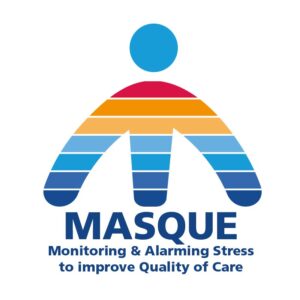Together with stakeholders, we will develop a garment-integrated sensor system for early stress detection in people with intellectual disabilities and dementia.
People with intellectual disabilities and dementia are sensitive to stress and may have limited verbal abilities. Their caregivers are faced with the challenge of reading and regulating their care recipient’s stress level and mood. Late recognition of stress can lead to challenging behaviour, such as aggression.
Challenging behaviour reduces the quality of life, makes care and support more difficult and more expensive, and the burden on caregivers leads to higher-than-average workplace absenteeism and staff turnover. It is therefore crucial to develop aids to prevent or diminish challenging behaviour.
In this project, we will develop a prototype that can determine the build-up of stress in a person based on sensors for physiological measurements, such as heart rate and electrodermal activity, and behavioural artificial intelligence models. Various stakeholders are consulted in iterative sessions about the design of the device, which consists of sensors that will be worn in clothing. The device makes it possible to identify early signs of stress build-up in people with intellectual disabilities or dementia. It warns the caregiver before stress levels reach a critical point, which enables the caregiver to respond to the needs of the client better and more quickly. This may prevent escalation of the situation, thereby reducing the amount of care needed, improving quality of life, reducing the burden on caregivers, and lowering healthcare costs. In addition, we will also conduct a survey among healthcare workers in long-term care about the use of healthcare technology (eHealth).

